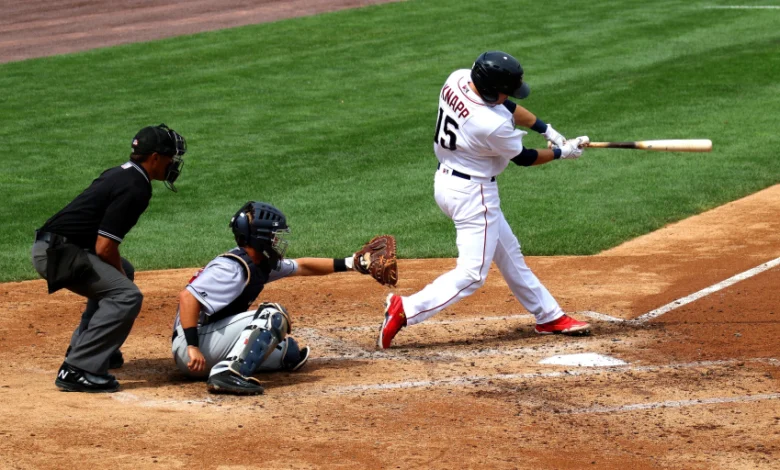Baseball: The Timeless Game that Captures the Heart

The Essence of Baseball
Baseball is more than just a sport; it’s a shared experience, a piece of cultural heritage that unites people across generations. The sound of the bat connecting with the ball, the cheer of the crowd, and the smell of fresh popcorn drifting through the stands — these elements create an atmosphere as memorable as the game itself.
What makes the national pastime unique is its pace and rhythm. Unlike fast-ticking, high-pressure sports, it allows each moment to breathe. Every pitch holds potential, every at-bat could change the outcome, and every inning feels like a new chapter. This unhurried style has a certain charm, giving fans time to soak in the action, chat with friends, and feel part of something bigger than themselves.
The Origins and Evolution of Baseball
Often called America’s pastime, the sport’s roots stretch across oceans. Its earliest influences came from old bat-and-ball games in England, such as rounders and cricket. In the United States, the modern version began forming in the mid-nineteenth century, growing from local amateur clubs into organized leagues with codified rules.
Over the decades, the game evolved with the times. Baseball uniforms changed from wool to lightweight performance fabrics, while stadiums shifted from wooden bleachers to state-of-the-art arenas. Analytics, high-tech gear, and global scouting have transformed play without losing the essence that made it special from the beginning.
A Cultural Touchstone
Few sports carry the cultural weight this one does. It has inspired music, film, literature, and even shaped national identity. Iconic films like Field of Dreams and The Sandlot capture their themes of friendship, nostalgia, and hope.
It has also mirrored society’s struggles and milestones. From Jackie Robinson breaking the color barrier to women’s leagues flourishing during World War II, the diamond has been a stage for change and progress. Baseball, the game’s legacy is built not only on wins and losses but also on stories that continue to inspire.
Skill and Strategy on the Diamond
At first glance, it might look simple — hit the ball, catch it, score runs. But beneath the surface lies a world of intricate tactics, precise timing, and mental discipline. Pitchers use a repertoire of fastballs, sliders, and curveballs to outwit hitters. Baseball fielders anticipate plays before the ball is even struck. Managers weigh matchups, weather, and momentum in every decision.
Success comes from a mix of natural talent and strategic thinking. A strong swing means little without pitch recognition, and a fast throw loses value without accuracy. This combination of skill and intelligence is what keeps the game endlessly fascinating for both players and spectators.
The Global Stage
Though deeply rooted in America, this sport has found passionate audiences worldwide — from Japan and South Korea to Cuba and the Dominican Republic. In baseball, each nation brings its flavor to the game. In Japan, it’s played with precision and respect; in the Caribbean, it’s infused with rhythm and flair.
International tournaments highlight these differences, bringing together players from varied backgrounds. Despite cultural distinctions, the diamond becomes a shared language — no translation required.
The Business Side of the Game
Beyond the field, it’s a multi-billion-dollar industry. Baseball ticket sales, broadcast deals, merchandise, and sponsorships fuel the financial side, while development leagues nurture the next generation of stars.
But it’s not purely about profit. Investments in youth programs, stadium upgrades, and community events keep the sport thriving for future generations. Balancing tradition with innovation remains key to its growth.
Iconic Moments and Legendary Players
Every fan can recall unforgettable plays — a walk-off home run, a no-hitter, or a spectacular diving catch. Legends like Babe Ruth, Hank Aaron, Jackie Robinson, and Derek Jeter have become synonymous with greatness.
These figures are remembered not just for statistics, but for the moments they created and the inspiration they offered. Each season brings new stars who aim to leave their mark on history.
Modern Science and Technology
While skill remains the heart of the game, technology has become an essential partner. Tracking systems measure pitch speed, spin, and trajectory. Baseball wearables monitor health and performance. Video analysis helps hitters study opposing pitchers and fielders refine positioning.
This blend of tradition and innovation has raised competition levels and deepened fan engagement through richer stats and insights.
The Mental Game
Part of the magic is psychological. Players’ baseball must stay locked in through long innings, while fans experience a slow build of suspense leading to explosive moments. Every pitch tests patience; every swing carries the weight of possibility.
In many ways, it mirrors life — stretches of calm, bursts of action, and the occasional twist. That balance is what keeps people returning season after season.
Community and Connection
From neighborhood leagues to championship games, this sport thrives on human connection. Families share the stands, friends debate team rivalries, and cities rally behind their local clubs.
Community initiatives use the game to teach teamwork, discipline, and sportsmanship. The scoreboard might decide the outcome, but the relationships built along the way are just as valuable.
In the Digital Era
Baseball Fans today can stay connected anywhere. Live streams, highlight clips, and interactive stats bring the action to smartphones and laptops. Social media lets athletes share behind-the-scenes glimpses, building stronger bonds with supporters.
These tools have helped expand its reach, introducing the pastime to new generations while keeping long-time fans engaged.
Modern Challenges
Like any tradition, it faces challenges. Shorter attention spans, competition from faster-paced entertainment, and debates over rule changes have spurred adaptations — from pitch clocks to instant replays.
The key will be preserving its character while making it accessible to modern audiences.
Why It Still Matters
The game remains meaningful because it’s more than a sport — it’s a reflection of life. It teaches patience, resilience, and the value of seizing the right moment. Baseball It’s about collective effort and personal triumphs, about history and hope, and about the simple joy of stepping onto the diamond.





